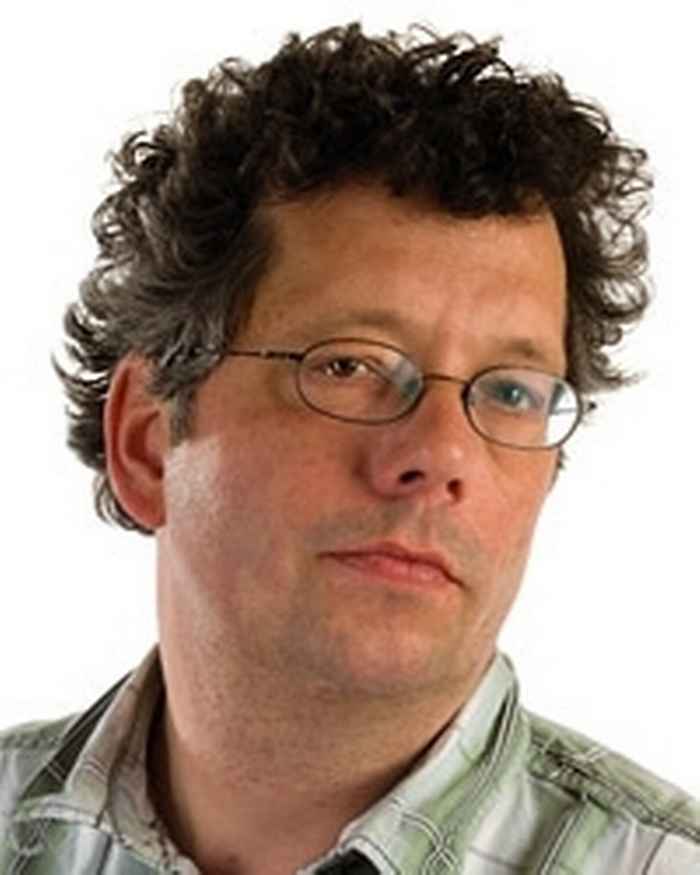 November 28, 2023
Panel
November 28, 2023
Panel
 Vox-Pop Amsterdam
Vox-Pop AmsterdamEastsplainers #9: Film & Documentary
Programme
In this session, we are pleased to host Aliona van der Horst, Dore van Duivenbode, and Otto Boele, who will discuss documentaries that cover historical and recent developments in Poland and the Russian Federation. Aliona van der Horst is a renowned documentary film director acclaimed for her distinctive style of poetic filmmaking. She tends to explore politically-charged collective tragedies that continue to haunt Russian society. Van der Horst’s impressive portfolio includes five films that delve into Russia’s tumultuous history, with her most recent work being “Turn Your Body to the Sun” (2021) about a Tatar Soviet soldier captured by the Nazis during WWI. She will be joined by Dore van Duivenbode, who is a writer, journalist, and TV presenter. Being of Polish-Dutch descent, she is committed to raising awareness about the current challenges to press freedom in Poland. Van Duivenbode spent eight months behind the scenes of Gazeta Wyborcza, one of the last remaining independent Polish newspapers, and documented her journey in the four-part series Gazeta, de Poolse krant onder vuur (‘Gazeta, the Polish Newspaper Under Fire’). The discussion will be moderated by Otto Boele, Senior Lecturer at Leiden University, who has extensive expertise on Contemporary Russian Literature and Russian Cinema.
About the speakers

Aliona van der Horst is of Dutch-Russian descent and considered one of the most prominent Dutch documentary directors. She pursued Slavic Studies at the University of Amsterdam before honing her documentary skills at the Dutch Film Academy. Her filmmaking style is marked by its poetic essence, drawing significant attention to elements such as nature, music, and language. While she has filmed in diverse locations like Japan, Iran, and the Netherlands, her enduring connection with Russia, which she shares a love-hate relationship with, has resulted in several of her most renowned documentaries. De Hermitazhniks (‘The Hermitage Dwellers’) (2003) sheds light on people behind the scenes of the famous museum in St Petersburg, Boris Ryzhy (2009) tells a story of the Russian poet of the Perestroika era, and Turn your body to the sun (2021). Notably, Aliona van der Horst is a pioneer in the realm of personal documentaries, where the filmmaker plays a role, but the story doesn’t revolve solely around them. Na de lente van ’68 (‘After the spring of ‘68’)(2002) explores the relationship between her Russian mother and Dutch father, who married during the Cold War, and Liefde is Aardappelen (‘Love is potatoes’) (2017) delves into her Russian family’s history. You can find Aliona van der Horst’s films on her website.

Dore van Duivenbode is a writer and journalist of a Polish-Dutch background. She pursued her academic journey in History at the Universiteit Utrecht. Her debut work, Mijn Poolse huis (My Polish House), published by De Geus in 2018, offers a compelling narrative about her childhood in Oswiecim (Auschwitz), the city of her mother’s birth. This book garnered significant recognition and received the prestigious Bob den Uyl Prize for the Best Travel Book. In addition to her writing, Dore van Duivenbode has ventured into TV-program and online documentary production. Notably, in 2019, she was featured in Moja Polska! (‘My Poland!’), a 5-part travel series produced by VPRO that explored contemporary Poland. She has also been involved in the production of the KRO-NCRV online series on sustainability, titled Dus Wat Gaan Wij Doen? (‘So What Will We Do?’). In 2023, she directed Gazeta, de Poolse krant onder vuur (‘Gazeta, the Polish Newspaper Under Fire’) , a four-part VPRO series that delves into the issues of press freedom in Poland. Currently, Dore van Duivenbode is working on her second book, Oerbos (to be published by De Geus).

Otto Boele teaches Russian literature and film at the University of Leiden. He regularly publishes in scholarly journals, such as Russian Literature, Wiener Slawistischer Almanach, Fifth Wave, and The Soviet and Post-Soviet Review. He is the editor of Kinokultura, a journal on the New Russian Cinema. In the past, Boele has taught courses on Russian and Soviet film for the Film Museum Eye in Amsterdam and the Leiden Film Festival. In 2022, he released the podcast series Schandaal en controverse in de Russische literatuur (‘Scandal and Controversy in Russian literature’), an English-language version of which will appear this year.